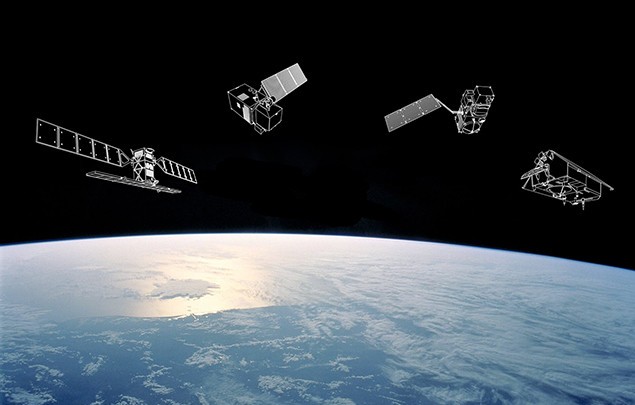Copernicus and GMV at the leading edge of Earth Observation technology

GMV has been running the Copernicus Precise Orbit Determination (POD) Service since 2014. It was awarded the contract for this service by the European Space Agency (ESA) under the Copernicus program to provide accurate and reliable data on the location of Sentinel satellites, specifically those belonging to the Sentinel-1, 2, 3, and 6 missions.
Copernicus is the European Union’s Earth observation program, designed to provide precise, up-to-date, easily accessible, and free information for improving environmental management, understanding, and mitigating the effects of climate change, and ensuring public safety. As part of the Copernicus POD Service, GMV calculates the precise orbits of all Sentinel satellites belonging to the above missions using global positioning system (GPS) measurements. Most of these measurements come from GPS satellites, but signals from the European Commission-funded Galileo satellites are also being used to a growing extent.
This service is essential for ensuring the quality of information and data provided for operational purposes. As well as developing orbital products, GMV supplies additional solutions and data that are key for precise orbit determination. The processing chains of each Sentinel mission with which GMV collaborates, as well as external users who require precise orbits or wish to perform their own precise orbit determination, benefit from them. GMV provides these products at different time intervals and does so in near real time.
GMV’s work within the Copernicus POD Service also considers possible changes or updates to the POD processing standards or the models being used. Depending on the extent of such changes, reprocessing campaigns are carried out to keep GMV’s products at the leading edge of precise orbit determination. These products are freely available on the ESA Copernicus Open Access Hub website.
In 2022, GMV won a contract to continue running the Copernicus POD Service for the following years. As part of this project, GMV recently hosted the annual meeting of the Copernicus POD Quality Working Group (QWG), a group of POD experts from institutions around the world, including DLR, CNES, NASA, and AIUB. The Netherlands was chosen as the location for this meeting, which was used to discuss the latest developments and future opportunities in POD. The point of these meetings is to share the latest advances in precise orbit determination so that those attending can develop products of the highest possible quality.
More about GMV and Copernicus
The Copernicus POD service is part of the program’s ground segment, where GMV is also active in other areas. For instance, the company was tasked with setting up the Sentinel satellite control centers and developing the constellation’s systems and subsystems, including the flight dynamics system and the mission planning system.
GMV is also one of the companies qualified to supply geospatial data processing services and is involved in developing the operational ground segment processors associated with each of the onboard instruments. In addition, it is responsible for maintaining and updating the simulators and software systems for managing Sentinel constellation data.
Overall, GMV has played an active role in all the program’s development and maintenance phases since its inception, as it also contributes to space segment tasks. It is active in other key areas, as well, including the use of data to provide services to society in various fields and in the Copernicus data storage infrastructure.
For more information on the Copernicus POD Service provided by GMV visit the ESA website: Sentinel Online.




